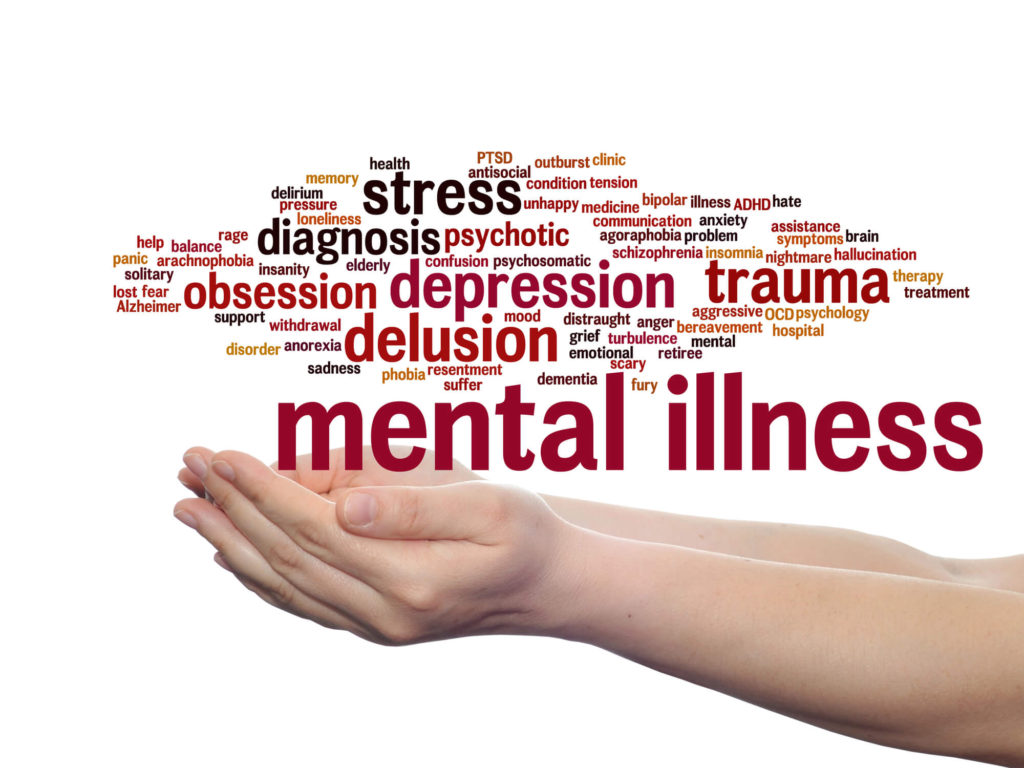Uncover Comprehensive Behavioral Health Services for People of All Ages
Uncover Comprehensive Behavioral Health Services for People of All Ages
Blog Article
Comprehensive Inpatient Mental Health Services for Effective Therapy
Inpatient mental health solutions represent an essential component of the health care system, providing a organized and extensive setting for individuals experiencing serious emotional distress. These services employ a multidisciplinary technique, integrating various evidence-based treatments to attend to the intricate demands of individuals. Nonetheless, the performance of such extensive treatment expands past immediate stablizing; it also encompasses the change to outpatient support, an essential stage often neglected. Exploring the subtleties of this continuum reveals substantial effects for both specific recovery and broader mental health results. What factors truly affect this transition, and how can we boost its performance?
Recognizing Inpatient Mental Wellness Solutions
Inpatient mental health and wellness services offer essential assistance for individuals experiencing extreme mental distress that can not be managed effectively in an outpatient setting. These solutions are developed to offer an intensive level of treatment in an organized atmosphere, commonly within a hospital or specialized center. Patients confessed to inpatient programs usually show acute symptoms, such as self-destructive ideation, extreme anxiety, or psychosis, requiring round-the-clock monitoring and intervention.
The admission procedure usually entails an extensive analysis by mental health experts, that assess the person's frame of mind, history, and instant needs. Once confessed, patients take part in a variety of restorative methods tailored to their particular needs, consisting of drug management, individual therapy, and team sessions. This alternative technique aims to stabilize the person's condition, promote security, and foster coping abilities.
Inpatient psychological health services not just address immediate health and wellness concerns however also work as a bridge to continuous treatment. By providing a controlled environment, these services facilitate the growth of treatment strategies that can be continued in outpatient settings, therefore making certain a continuum of care and enhancing long-term outcomes for individuals with complex psychological health and wellness requirements.
Key Elements of Effective Therapy
Reliable therapy in inpatient mental wellness solutions consists of a number of key components that foster recuperation and stablizing. Firstly, a detailed assessment is important to determine the individual's certain requirements and obstacles. This evaluation notifies the advancement of a customized therapy strategy, which acts as a roadmap for intervention.
One more critical part is the multidisciplinary group strategy. Partnership among psychoanalysts, psycho therapists, registered nurses, and social workers guarantees that numerous viewpoints add to the patient's care, improving the performance of therapy. Evidence-based therapeutic methods, such as cognitive-behavioral therapy (CBT) and dialectical habits treatment (DBT), are also indispensable, offering organized methods that address maladaptive idea patterns and behavior problems.

Finally, a concentrate on aftercare planning is vital to ensure a smooth shift to outpatient solutions, decreasing the risk of regression and advertising lasting wellness. These collective elements create an efficient therapy framework within inpatient mental health solutions.
Benefits of Comprehensive Treatment

Extensive treatment in inpatient psychological health and wellness services supplies numerous advantages that substantially improve client outcomes. One of the primary advantages is the holistic strategy to treatment, resolving not only the emotional signs and symptoms but additionally the physical, social, and emotional requirements of people. This extensive analysis enables customized treatments that advertise general wellness.
One more advantage is the assimilation of multidisciplinary teams, which promotes collaboration among medical care experts. This joint environment ensures that individuals get coordinated treatment, minimizing the danger of fragmented therapy and boosting communication among caregivers. In addition, thorough treatment helps with continuity of solutions, permitting smooth shifts from inpatient to outpatient settings, which is vital for long-lasting recovery.

Last but not least, the organized atmosphere of extensive inpatient treatment provides a risk-free room for individuals to participate in healing tasks, assisting them develop coping approaches and resilience. Jointly, these benefits add to more effective therapy and enhanced lifestyle for individuals experiencing mental wellness dilemmas.
Evidence-Based Healing Methods
In the realm of mental health and wellness treatment, evidence-based restorative approaches play a crucial role in making certain that individuals receive efficient and scientifically sustained treatments. These strategies incorporate the best readily available research study with medical knowledge and person values, cultivating a customized treatment experience that resolves individual requirements.
Cognitive Behavior Therapy (CBT) is just one of one of the most commonly identified evidence-based approaches, focusing on identifying and altering adverse idea patterns and behaviors. This organized strategy has shown effectiveness in treating conditions such as anxiety, depression, and ptsd. Similarly, Dialectical Behavior Modification (DBT) is specifically efficient for people with borderline personality problem, emphasizing the advancement of psychological regulation and interpersonal performance skills.
Furthermore, medication monitoring is often an indispensable component of evidence-based treatment, as psychotropic medications can minimize signs and enhance total performance. Collective care versions, which entail multidisciplinary teams, better enhance the efficiency of inpatient services by making sure extensive analyses and continuous monitoring.
Ultimately, the integration of evidence-based restorative approaches not just promotes favorable professional end results however likewise empowers patients, fostering a sense of company and strength in their mental health trips.
Transitioning to Outpatient Assistance
The change from inpatient psychological wellness solutions to outpatient support marks an important stage in a patient's recuperation trip. This duration calls for cautious preparation and control to make sure connection of treatment and to mitigate the risks of regression or dilemma. Reliable discharge planning need to begin early in the inpatient stay, involving a multidisciplinary team that includes psychiatrists, psycho therapists, nurses, and social workers.
Crucial element of an effective transition consist of the growth of an extensive aftercare strategy tailored to the person's specific demands. This plan should lay out follow-up appointments, drug administration, and healing interventions, in addition to recognize community sources and support system that can promote ongoing recuperation.
Additionally, client and family members education is my company crucial during this phase. Understanding the indications of possible obstacles and the value of adhering to therapy can empower people and their assistance systems.
Routine follow-up and reassessment of the outpatient strategy are vital to address evolving challenges. By fostering a collective relationship between outpatient and inpatient companies, the chance of sustained recovery increases, ultimately enhancing the client's lifestyle and lowering the threat of readmission.

Conclusion
In recap, thorough inpatient psychological health services provide a necessary structure for attending to serious emotional distress through a multidisciplinary strategy. By integrating evidence-based therapies, cultivating a structured atmosphere, and advertising family participation, these solutions enhance therapy efficiency. The emphasis on stability and the development of dealing abilities not just help in prompt recuperation however additionally assists in a smoother change to outpatient care. Inevitably, such extensive treatment is essential for lasting mental wellness and wellness.
The admission process usually includes a detailed assessment by psychological health and wellness experts, that examine the person's psychological state, background, and instant demands.Efficient therapy find in inpatient psychological you could try this out health and wellness services comprises a number of vital components that foster recovery and stablizing.Thorough treatment in inpatient psychological wellness services supplies many advantages that significantly improve individual outcomes.The change from inpatient mental wellness solutions to outpatient assistance notes a vital phase in a patient's healing journey.In recap, comprehensive inpatient psychological health solutions offer an essential structure for dealing with severe mental distress with a multidisciplinary strategy.
Report this page